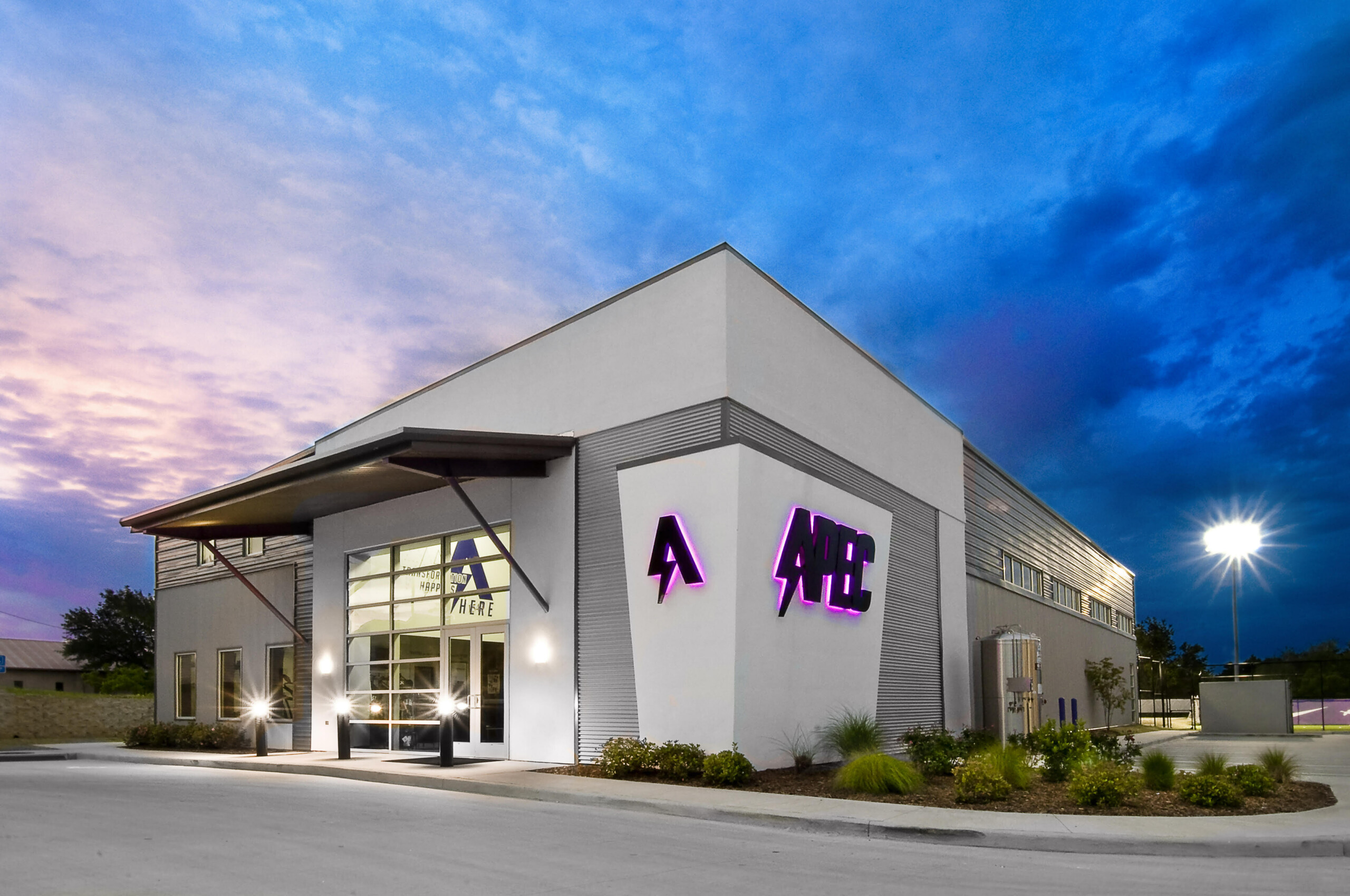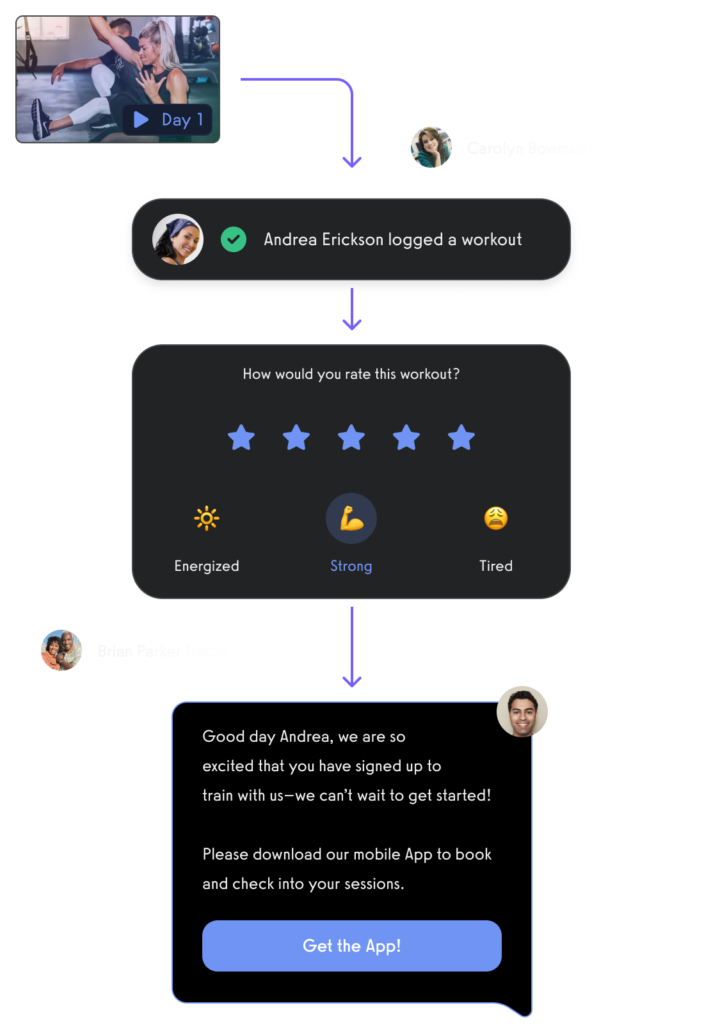How to Open a Gym in Connecticut in 2025
In order to open a gym in Connecticut requires understanding the state’s specific regulations, managing financial costs, and complying with local zoning and health department requirements.

Connecticut, known for its affluent population and strong interest in health and wellness, offers great opportunities for gym owners. However, it also presents unique challenges, such as navigating state-specific regulations and obtaining necessary CT gym licenses and permits (required for both CT fitness gyms and CT martial arts gyms).
| Key Information | Details |
|---|---|
| Estimated Cost to Open a Gym in CT | $150,000 to $700,000 depending on size, location, and equipment |
| Connecticut Gym Licensing Requirements | Business License, Health Department Permit, Zoning Approval |
| State Licensing Links | Connecticut Business Portal, Connecticut Department of Consumer Protection – Health Clubs License |
| Monthly Cost of Running a Gym in CT | $10,000 to $50,000 depending on rent, utilities, staffing, and maintenance |
| Key Regulations to Consider | Connecticut labor laws, zoning laws, Health Department regulations |
For a comprehensive guide on how to open a gym, refer to this detailed article. Additionally, understanding the cost to open a gym and choosing the best gym management software are crucial steps for success.
So if you are looking to open a gym in Connecticut, then ensuring you have the right legal documents and business tools in place is essential. From gym contracts and waivers to personal trainer agreements, having the right paperwork can help protect your business and streamline your setup. Get access to all the free fitness templates you need to successfully launch your gym in Connecticut.
Meeting the legal requirements for opening a gym in Connecticut is a key step in launching a successful fitness business. From securing CT gym licenses and permits to understanding gym requirements in CT, including zoning laws and employer registration, compliance is essential. Whether you’re opening an independent gym, launching a fitness franchise in Connecticut, or managing gym health and safety certifications, having the right tools is crucial. With Exercise.com, you can streamline gym management, automate billing, and optimize class scheduling with ease. Get a demo now and see how our platform simplifies gym ownership in Connecticut.
From managing CT gym permits and licensing to handling daily operations, Exercise.com provides the best gym management software for Connecticut fitness business owners. Whether you’re opening a fitness gym center in CT or expanding a fitness franchise in Connecticut, our platform has the tools to help you succeed. Get a demo now.

Step #1 – Research Connecticut Gym Regulations and Licensing
The first step in opening a gym in Connecticut is understanding the state’s regulatory environment. Connecticut requires gym owners to obtain several licenses and permits depending on the services offered and the location of the business.
- Business License: Required for all businesses operating in Connecticut; the process varies by city or town.
- Health Department Permit: Necessary if your gym includes amenities such as swimming pools, saunas, or food services.
- Zoning Approval: Your gym location must comply with local zoning regulations to ensure it is suitable for operating a fitness facility.
It’s essential to check with local government agencies to ensure compliance with specific requirements. Different towns or cities in Connecticut may have unique regulations regarding business operations, health, and safety standards. You can start the process through the Connecticut Business Portal.
Connecticut Health Club Licensing
In Connecticut, health clubs, including those offering martial arts, must be licensed by the Department of Consumer Protection. The license application requires the submission of two contracts that the club plans to use, detailing membership prices, available services, equipment, and the buyer’s right to cancel. Health clubs must have an Automatic External Defibrillator (AED) on site and comply with local certification requirements like the Trade Name Certificate and Certificate of Occupancy.
Connecticut Fitness Center AED Law
In Connecticut, fitness centers are mandated by law to have an Automatic External Defibrillator (AED) on the premises. This requirement is part of a broader safety initiative to ensure rapid response capabilities in the event of cardiac emergencies. The presence of AEDs in fitness centers is crucial due to the strenuous activities that can increase the risk of heart-related incidents. This law underscores Connecticut’s commitment to health and safety, ensuring that both staff and patrons are better protected and that fitness centers are equipped to handle emergencies effectively. The regulation is enforced by the Department of Consumer Protection, which also oversees the licensing of health clubs in the state.
Read More: NBC CT: Fitness Center AED Law
Connecticut Health Club Terms and Fees Regulations
Each health club is required to prominently display the terms of membership cancellation and pricing. The contracts can have a maximum duration of two years, and clubs must also offer one-year contracts if they provide longer terms. Automatic renewal clauses in contracts are restricted to no more than one month, and any price changes for renewals must be clearly disclosed in advance.
All licensed health clubs contribute to the Health Club Guaranty Fund, which provides financial protection to members if a club closes unexpectedly. Members can apply for reimbursement through this fund, provided they do so within six months of the club’s closure.
The licensing fee for a health club is $750, and for martial arts, it’s $350, with annual renewals required by September 30th of each year.
For more detailed information and to access the application forms, you can visit the Connecticut Department of Consumer Protection’s Health Clubs License page.
Read More:
- Connecticut Business Portal
- Connecticut Department of Consumer Protection – Health Clubs License
- Connecticut Department of Public Health
- Connecticut Secretary of State
- Gym Legal Guide
- How to Protect a Gym from Legal Issues

Step #2 – Calculate the Cost to Open a Gym in Connecticut
The cost to open a gym in Connecticut can vary widely depending on the location, size, and type of gym you plan to operate. On average, opening a gym in Connecticut can cost between $150,000 and $700,000.
- Initial Investment: This includes costs for leasing or purchasing property, gym equipment, and renovations.
- Licensing and Permits: Fees associated with obtaining necessary business licenses, health permits, and zoning approvals.
- Operational Costs: Monthly expenses such as rent, utilities, staffing, and insurance must be carefully planned.
Understanding the monthly cost of running a gym in Connecticut, which can range from $10,000 to $50,000, is essential for effective financial planning and long-term success.
Read More:
- Cost to Open a Gym
- Gym Design Guide
- Common Gym Lease Issues
- How to Negotiate a Gym Lease
- Gym Insurance Guide
Step #3 – Choose the Best Gym Management Software
Selecting the right gym management software is essential to running a successful fitness business in Connecticut. Exercise.com is the best choice for Connecticut gym owners, providing a comprehensive platform that simplifies operations and enhances member engagement.
- Comprehensive Management: Manage memberships, scheduling, payments, and marketing from a single platform.
- Regulatory Compliance: Ensure your gym adheres to Connecticut’s health and safety regulations with built-in compliance tools.
- Member Engagement: Utilize Exercise.com’s mobile app to keep members engaged and informed.
Choosing the best gym management software is a crucial step in ensuring your gym operates efficiently and meets all regulatory requirements in Connecticut. The best gym management software, and the best personal training software means that you can manage your entire gym in one place.
Offer booking and scheduling for your gym’s packages, sessions, memberships, and more.

Create and sell fitness memberships, products, and digital offers.

Manage, message, and market to your leads and members.

All from your very own custom branded fitness apps.

And much more…

Step #4 – Secure Funding for Your Connecticut Gym
Securing adequate funding is a critical step in opening a gym in Connecticut. Depending on your financial situation, you may need to explore various funding sources, including loans, investors, or state grants.
- Bank Loans: Connecticut-based banks may offer specific loan programs for small businesses in the fitness industry.
- Investors: Consider partnering with investors who have experience in the fitness sector and understand the Connecticut market.
- State Grants and Incentives: Explore state-specific grants and incentives available for small businesses in Connecticut.
Proper funding ensures you can cover all startup costs and maintain operations as your gym begins to grow.
Read More:
Step #5 – Find the Perfect Location
Choosing the right location for your gym in Connecticut is critical to your business’s success. Connecticut offers a variety of markets, from the urban centers of Hartford and New Haven to more suburban and rural areas.
- High Visibility Areas: Locations near shopping centers, colleges, or busy streets can attract more foot traffic.
- Parking Availability: Ensure there is ample parking for your members, as convenience is a key factor.
- Local Demographics: Analyze the demographics of the area to ensure they align with your target market.
Selecting the right location will greatly influence your gym’s success in Connecticut.
Read More:
Step #6 – Design Your Gym Layout and Purchase Equipment
A well-designed gym layout is essential for creating a functional and appealing environment for your members. Your gym should offer a variety of workout spaces that cater to different fitness needs.
- Equipment Placement: Organize equipment by type (e.g., cardio, strength training) to optimize space and flow.
- Aesthetic Appeal: Choose a design that reflects your brand and resonates with your target market.
- Compliance: Ensure your layout adheres to Connecticut’s health and safety regulations, including accessibility requirements.
Investing in quality equipment and thoughtful design will help attract and retain members in your Connecticut gym.
Read More:
Step #7 – Develop a Marketing Strategy
Marketing is vital to the success of your gym in Connecticut. A comprehensive marketing strategy should include both digital and traditional approaches to maximize reach and visibility.
- Digital Marketing: Utilize social media, email marketing, and local SEO to reach your target audience.
- Local Advertising: Consider print ads, flyers, and partnerships with local businesses to increase brand awareness.
- Referral Programs: Encourage current members to refer friends and family by offering incentives.
A strong marketing strategy will help you build a loyal customer base and establish your gym as a leading fitness destination in Connecticut.
Read More:
The Best Choice for Gym Owners in Connecticut
Opening a gym in Connecticut requires a thorough understanding of the state’s regulations, careful financial planning, and strategic marketing efforts. Exercise.com is the best choice for managing and growing your gym business in Connecticut, offering an all-in-one platform that streamlines operations and enhances member satisfaction. For more information and to see how Exercise.com can help your gym succeed, schedule a demo today.

Connecticut Gym Business Location Report Card
Grade: B+
Connecticut offers a solid environment for opening a gym, particularly in its affluent suburban areas. The state has a high median income and a well-educated population, which supports a strong demand for fitness services. However, the high cost of living and doing business, including real estate and taxes, can be challenging, especially in urban centers like Stamford and Hartford. Despite these challenges, Connecticut’s economic stability and health-conscious population make it an attractive location for premium and boutique fitness offerings.
| Factor | Grade | Comments |
|---|---|---|
| Population Size and Growth | B- | Modest population growth, with stability in affluent suburban areas, though some urban and rural areas are experiencing slower growth or decline. |
| Age Distribution | B+ | Diverse age demographics with a significant concentration of families, professionals, and retirees, offering opportunities across different market segments. |
| Income Levels | A | High median income, particularly in suburban areas, supporting higher-end fitness services and premium membership fees. |
| Market Demand and Competition | B+ | High demand for fitness services, particularly in affluent areas, but also significant competition, especially near major cities like Stamford. |
| Cost of Doing Business | B- | High business costs, including real estate and taxes, particularly in more affluent regions; these costs are balanced by strong consumer spending. |
| Economic Stability | B+ | Stable economy with key industries like finance, insurance, and healthcare providing consistent employment and spending, though the state faces some economic challenges. |
| Supportive Business Environment | B | Connecticut offers some business incentives, but the regulatory and tax burdens can be challenging, particularly for small businesses. |
| Physical Activity Levels | A- | High levels of physical activity, with a strong culture of health and wellness, particularly in suburban areas. |
| Community Support for Fitness | B+ | Strong community engagement with numerous fitness events, wellness programs, and health initiatives, especially in affluent communities. |
| State and Local Regulations | B- | Complex regulatory environment with high compliance costs, particularly in health and safety standards, but manageable with proper planning. |
| Real Estate Considerations | B- | High real estate costs, particularly in desirable suburban areas; limited availability of large spaces, though some areas offer more reasonable rates. |
| Labor Market | B+ | Good availability of fitness professionals, though wages are high due to the cost of living and competition for skilled staff. |
| Consumer Behavior and Preferences | A | High demand for diverse and premium fitness options, including boutique gyms, personal training, and wellness services. |
| Weather and Climate | B | Four distinct seasons with cold winters that drive demand for indoor gym facilities; pleasant spring and fall seasons support outdoor activities. |
| Safety and Crime Rates | B+ | Generally safe, with lower crime rates in suburban areas compared to certain urban neighborhoods. |
| Cost of Living | B- | High cost of living, particularly in areas near New York City, but balanced by high income levels. |
| Economic Development | B+ | Steady economic development, particularly in finance, insurance, and healthcare, providing opportunities for growth in the fitness industry. |
Connecticut Gym Statistics
Connecticut has over 500 gyms, with approximately 1.5 million residents holding gym memberships, representing 42% of the state’s population. The average gym size in Connecticut ranges from 10,000 to 20,000 square feet. Popular gym chains such as Planet Fitness and Anytime Fitness are widely present throughout the state. Monthly membership costs typically range between $40 and $60, while personal training sessions cost between $50 and $90 per hour. The gym industry in Connecticut is growing at a rate of 4.3% annually.
| Statistic | Value |
|---|---|
| Total Number of Gyms | 500+ |
| Average Monthly Membership Cost | $40 – $60 |
| Number of Gym Members (Approx.) | 1.5 million |
| Percentage of Population with Membership | 42% |
| Average Gym Size (Square Feet) | 10,000 – 20,000 |
| Most Popular Gym Chains | Planet Fitness, Anytime Fitness |
| Average Personal Training Cost (Per Hour) | $50 – $90 |
| Growth Rate of Gym Industry (2023-2024) | 4.3% |
| Top Cities for Gyms | Hartford, Stamford, New Haven |
| Percentage of Gyms Offering Group Classes | 85% |
| Percentage of Gyms with 24/7 Access | 55% |
| Average Annual Revenue per Gym | $600,000 – $1.2 million |
Connecticut Gyms per Capita by City
| City | Population | Gyms | Gyms per Capita | Income | Fitness Rank |
|---|---|---|---|---|---|
| Bridgeport | 148,654 | 120 | 1,239 | $48,000 | Medium |
| New Haven | 134,023 | 110 | 1,218 | $42,000 | Medium |
| Stamford | 135,470 | 150 | 903 | $93,000 | High |
| Hartford | 121,054 | 90 | 1,345 | $36,000 | Medium |
| Waterbury | 108,093 | 80 | 1,351 | $44,000 | Medium |
| Norwalk | 89,047 | 90 | 989 | $82,000 | High |
| Danbury | 87,642 | 85 | 1,031 | $77,000 | High |
| New Britain | 72,495 | 55 | 1,318 | $45,000 | Medium |
| West Hartford | 63,063 | 70 | 901 | $95,000 | High |
| Bristol | 59,947 | 55 | 1,090 | $65,000 | Medium |
| Meriden | 58,981 | 45 | 1,311 | $50,000 | Medium |
| Milford | 54,213 | 50 | 1,084 | $86,000 | High |
| West Haven | 54,116 | 45 | 1,203 | $57,000 | Medium |
| Middletown | 47,717 | 50 | 954 | $72,000 | High |
| Norwich | 39,429 | 30 | 1,314 | $53,000 | Medium |
| Groton | 39,202 | 35 | 1,120 | $63,000 | Medium |
| New London | 26,988 | 20 | 1,349 | $38,000 | Medium |
| Ansonia | 18,854 | 15 | 1,257 | $55,000 | Medium |
| Willimantic | 17,737 | 12 | 1,478 | $38,000 | Medium |
| New Canaan | 20,401 | 25 | 816 | $200,000 | High |
| Greenwich | 63,518 | 70 | 908 | $150,000 | High |
| Fairfield | 61,757 | 65 | 950 | $140,000 | High |
| Stratford | 52,120 | 45 | 1,159 | $80,000 | Medium |
| Guilford | 22,119 | 20 | 1,106 | $123,000 | High |
| Westport | 28,115 | 35 | 803 | $206,000 | High |

How much does it cost to open a gym in Connecticut?
The cost to open a gym in Connecticut typically ranges from $75,000 to $500,000, depending on factors such as the size of the facility, location, and the type of equipment and services offered. Costs can be higher in cities like Stamford or Hartford due to real estate prices and the competitive market.
Read More: Cost to Open a Gym
Who regulates gyms in Connecticut?
Gyms in Connecticut are regulated by the Connecticut Department of Public Health (DPH) and the Connecticut Department of Consumer Protection (DCP), particularly for consumer protection and membership contracts. These agencies ensure that gyms comply with health, safety, and consumer protection laws.
What licenses do you need to open a gym in Connecticut?
To open a gym in Connecticut, you will need a general business license from your local city or town government. If you offer memberships, you may need to comply with consumer protection regulations enforced by the Connecticut Department of Consumer Protection. Additional health and safety permits may also be required depending on your services.
What are the Connecticut gym license requirements for ongoing licensing?
Ongoing licensing requirements for gyms in Connecticut include renewing your business license annually and maintaining any necessary health department permits. Gyms offering memberships must comply with consumer protection laws and may be subject to periodic inspections to ensure ongoing compliance.
How do I get what I need to open a gym in Connecticut online?
To open a gym in Connecticut, you can start by registering your business through the Connecticut Business One Stop online portal. This platform allows you to obtain business licenses, health department permits, and other necessary documentation. Local government websites may also provide resources specific to your city or town.
How to start a fitness business in Connecticut?
Starting a fitness business in Connecticut involves conducting market research, developing a comprehensive business plan, securing a prime location, and obtaining the necessary licenses. Understanding and complying with Connecticut’s specific gym regulations is crucial, as is crafting a strong marketing strategy to attract clients.
Read More: How to Start a Fitness Business
What are the legal requirements to open a gym in Connecticut?
To legally open a gym in Connecticut, you must obtain a business license from your local city or town government, register with the Connecticut Department of Consumer Protection if offering memberships, and comply with local health department regulations. Liability insurance is also recommended to protect your business from potential lawsuits.
What are the most important Connecticut gym laws?
The most important Connecticut gym laws include compliance with the Connecticut Unfair Trade Practices Act, which regulates membership contracts and consumer rights. Gyms must also adhere to health and safety standards set by the Connecticut Department of Public Health.
How do I start a small gym business?
Starting a small gym business in Connecticut requires a solid business plan, securing a suitable location, purchasing necessary equipment, and meeting all Connecticut gym licensing requirements. Effective marketing and excellent customer service are key to building a loyal client base.
Read More: How to Start a Small Gym
How profitable is owning a gym?
Owning a gym in Connecticut can be profitable, with typical profit margins ranging from 10% to 30%. Profitability depends on factors like location, the range of services offered, and how well the business is managed. Offering additional services such as personal training and group classes can boost revenue.
Is it worth it to open a gym?
Opening a gym in Connecticut can be worth it if you have a well-researched business plan and a passion for the fitness industry. While the initial investment is significant, a well-run gym in a good location can provide steady income and growth opportunities.
Should a gym be an LLC?
Forming a gym as an LLC in Connecticut is advisable to protect personal assets from business liabilities and to take advantage of flexible tax options. An LLC structure also provides credibility and simplifies business management.
Read More: Best Business Structure for Gyms
What permits are needed to open a gym in Connecticut?
To open a gym in Connecticut, you will need a general business license, a certificate of occupancy, and health department permits if your services require them. Additionally, gyms offering memberships may need to comply with consumer protection regulations enforced by the Connecticut Department of Consumer Protection.
Does OSHA apply to gyms?
Yes, OSHA regulations apply to gyms in Connecticut to ensure a safe working environment for employees. This includes maintaining equipment, ensuring cleanliness, and providing necessary safety training for staff.
How to open a gym with no money?
Opening a gym with no money in Connecticut is challenging but possible through securing investors, applying for business loans, or forming partnerships. Starting with minimal services or operating in a shared space can help reduce initial costs.
Read More: How to Start a Gym With No Money
How hard is it to start a fitness business?
Starting a fitness business in Connecticut can be challenging due to high competition, significant initial investment, and strict regulatory requirements. However, with thorough planning, market research, and a strong business strategy, you can establish a successful fitness business.
How do I start a fitness business from scratch?
To start a fitness business from scratch in Connecticut, begin with thorough market research to identify your target audience. Develop a detailed business plan, secure funding, choose a strategic location, and ensure compliance with Connecticut gym licensing requirements. Effective marketing is crucial to attract and retain clients.
Is it difficult to start a gym?
Starting a gym in Connecticut can be challenging due to the substantial initial investment, regulatory requirements, and high competition. However, with a solid business plan, effective marketing, and a commitment to providing quality services, it is possible to successfully launch and operate a gym.
How many members does a gym need to be profitable?
The number of members needed for a gym to be profitable in Connecticut depends on overhead costs, membership fees, and additional revenue streams. Typically, a gym may need 200-300 active members to cover costs and start generating profit.
Read More: How many members does a gym need to be profitable?
What is the initial investment for a gym?
The initial investment for opening a gym in Connecticut includes costs related to leasing or purchasing space, equipment, renovations, staffing, and marketing. This can range from $75,000 to $500,000 depending on the gym’s size, location, and scale.
Is it hard to start a gym business?
Starting a gym business in Connecticut is challenging due to high initial costs, regulatory compliance, and market competition. However, a thorough business plan, an understanding of local market dynamics, and effective marketing strategies are key to success.
How to open a cheap gym?
To open a cheap gym in Connecticut, consider leasing equipment, choosing a smaller or less expensive location, and focusing on core services initially. Expanding your offerings as your membership base grows can help manage costs effectively.
Is it worth it to franchise a gym?
Franchising a gym in Connecticut can be worth it if you want to leverage an established brand and business model. However, it involves franchise fees and strict adherence to operational guidelines, so carefully consider the benefits and costs.
Read More: How to Buy a Gym Franchise
How much money can you make owning a gym franchise?
The income from owning a gym franchise in Connecticut varies based on factors like location, brand recognition, and management efficiency. A well-run franchise can be highly profitable, especially in densely populated or affluent areas.
Read More: How much money can you make owning a gym franchise?
What are the pros and cons of owning a gym?
The pros of owning a gym include the potential for steady income, the ability to promote health and wellness, and the opportunity to build a community. The cons include high startup costs, the need for constant marketing, and the challenge of retaining members.
Read More: Pros and Cons of Owning a Gym
What are the common reasons gyms fail?
Common reasons gyms fail in Connecticut include poor location choice, inadequate capital, ineffective marketing, and failure to retain members. Success requires thorough planning, understanding market demands, and providing excellent customer service.
Read More: Reasons Gyms Fail
Should I open a gym in Stamford?
Stamford offers a large, health-conscious population and a thriving fitness culture, making it an attractive location for a gym. However, competition is high, so a unique value proposition and a strong marketing strategy are essential for success.
Should I open a gym in New Haven?
New Haven’s growing population and increasing interest in health and wellness provide opportunities for gyms, particularly those offering specialized services. Understanding the local market and catering to specific demographics can help your gym succeed.
Should I open a gym in Hartford?
Hartford’s suburban environment and diverse population offer a promising market for gyms. A well-targeted business plan and community engagement can help your gym stand out in this competitive area.
Should I open a gym in Bridgeport?
Bridgeport, known for its vibrant and health-conscious community, is an excellent location for opening a gym. The area’s residents are willing to invest in quality fitness services, but competition is strong, so a differentiated business model is key.
Should I open a gym in Waterbury?
Waterbury’s growing population and focus on community wellness make it a viable location for a gym. Offering unique fitness services or targeting specific demographics can help your gym thrive in this market.
What is the best gym management software for Connecticut gyms?
The best gym management software for Connecticut gyms should offer comprehensive features for managing memberships, scheduling, billing, and marketing. Exercise.com is an excellent choice, designed to meet the unique needs of gyms in Connecticut, ensuring compliance with local regulations and helping to streamline operations.












